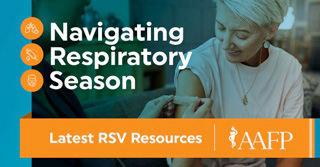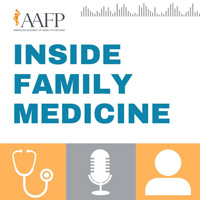Respiratory Syncytial Virus (RSV) Vaccines and Therapeutics
Respiratory syncytial virus (RSV) is a common virus that affects the lungs, making breathing difficult. It is also more common in the spring and fall seasons. The virus is common in children under 2 years, though people of all ages can get it. Illness caused by RSV is often more severe for young and premature infants, as well as older adults with poor health. View the latest clinical guidance here.
While most children who contract RSV experience mild symptoms, the CDC estimates that each year, between 58,000 and 80,000 children younger than age 5 years are hospitalized due to RSV infection.
Adults at the highest risk for severe RSV illness include:
- Older adults
- Adults with chronic heart or lung disease
- Adults with weakened immune systems
- Adults living in nursing homes or long-term care facilities.
The CDC estimates that RSV causes approximately 60,000-160,000 hospitalizations and 6,000-10,000 deaths among older adults every year.

Watch our Q&A
Julie Wood, MD, MPH, FAAFP, and James Bigham, MD, MPH, FAAFP, recently discussed lessons learned about respiratory illnesses and insights for family physicians as we finish out the 2023 respiratory season and look ahead to 2024.
CDC: RSV immunizations still critical
The CDC is sharing these key messages and tools for health care providers to use in this urgent effort to protect patients.
The optimal time to immunize patients against the fall/winter respiratory viruses is now, and we’re falling behind in some populations. Why?
- Viral respiratory season has arrived and is expected to worsen over the next several weeks in much of the country. See how your state is doing here.
- Rates of vaccination for some populations are lagging behind where we’ve been in years past. Rates of vaccination for the updated COVID-19 vaccine are <15% for people under 65 years.
CDC and AAFP Clinical Guidance Recommendations
The AAFP RSV recommendations for pregnant people:
- The bivalent RSVpreF maternal RSV vaccine for pregnant people during 32 through 36 weeks gestation, using seasonal administration, to prevent RSV lower respiratory tract infection in infants.
- Maternal Immunization Task Force Joint Statement: Obstetric Care Professionals Recommend RSV Vaccine for Pregnant Individuals
Updated Guidance for Healthcare Providers on Increased Supply of Nirsevimab to Protect Young Children from Severe Respiratory Syncytial Virus (RSV) during the 2023–2024 Respiratory Virus Season
Jan. 8, 2024 -- On October 23, 2023, the Centers for Disease Control and Prevention (CDC) issued Health Alert Network (HAN) Health Advisory 499 to provide guidance for prioritization of nirsevimab given limited supply. Nirsevimab (Beyfortus, Sanofi and AstraZeneca) is a long-acting monoclonal antibody immunization recommended for preventing RSV-associated lower respiratory tract disease in young children. Given the recent increase in nirsevimab supply and the manufacturers’ plan to release an additional 230,000 doses in January, CDC advises healthcare providers to return to recommendations put forward by CDC and the Advisory Committee on Immunization Practices (ACIP) on use of nirsevimab in young children. Infants and children recommended to receive nirsevimab should be immunized as quickly as possible. Healthcare providers should not reserve nirsevimab doses for infants born later in the season when RSV circulation and risk for exposure to RSV may be lower. RSV activity remains elevated nationwide and is continuing to increase in many parts of the country, though decreased activity has been observed in the Southeast.
Recommendations for Healthcare Providers
- In the setting of increasing supply, healthcare providers should administer a single dose of nirsevimab to all infants aged less than 8 months, as well as children aged 8 through 19 months at increased risk.
- Healthcare providers should continue to work with their state immunization program and the manufacturer to order available nirsevimab doses. CDC is working closely with jurisdictional partners to ensure adequate supply through the Vaccines for Children Program.
- Neither RSV vaccine (Pfizer Abrysvo, GSK Arexvy) is approved for use in infants or young children. Healthcare providers should take care to use the correct product for the correct population.
- Although supply of nirsevimab is expected to increase, available supply may continue to vary locally and by healthcare facility. For healthcare providers who continue to have limited supply, nirsevimab should be prioritized to protect infants at the highest risk for severe RSV disease using the following principles: first by high-risk conditions and then by age, prioritizing the youngest infants first.
- Pregnant people 32 through 36 weeks gestation should receive RSV vaccination through January.
- Pfizer Abrysvo is the only RSV vaccine recommended for use in pregnant people. GSK Arexvy is not recommended for use in pregnant people.
Administration of both nirsevimab and RSV vaccination for pregnant people is not needed to protect most infants.
Additional background information and recommendations for healthcare providers can be found at the CDC Health Alert Network.
The AAFP RSV recommendations for adults 60 years and older:
- Adults 60 years of age and older may receive a single dose of Respiratory Syncytial Virus (RSV) vaccine, using shared clinical decision-making. The AAFP's recommendation is consistent with recommendations from the Advisory Committee on Immunization Practices (ACIP) and the CDC, which have both endorsed use of new RSV vaccines for people ages 60 years and older. Patients over 60 should talk to their family physician or other clinician about whether or not RSV vaccination is right for them.
Information on Respiratory Syncytial Virus (RSV) Vaccine Administration Errors in Young Children and Pregnant People
Vaccine administration errors are known to occur and are routinely monitored through the Vaccine Adverse Event Reporting System1 (VAERS). Since approval of RSV vaccines and the monoclonal antibody nirsevimab, the Centers for Disease Control and Prevention (CDC) and the Food and Drug Administration (FDA) have received reports of the Pfizer (Abrsyvo) or GSK (Arexvy) RSV vaccines being administered in error to young children. CDC and FDA have also received reports of the GSK RSV vaccine (Arexvy) being administered in error to pregnant people. As of January 17, 2024, the number of reports received by VAERS suggests that these types of errors are uncommon in young children less than 2 years of age (25 reports) and pregnant people (128 reports) relative to an estimated 1 million infants protected from RSV either through infant receipt of nirsevimab or through vaccination of pregnant people.2
In August and September 2023, CDC and the Advisory Committee on Immunization Practices recommended two RSV prevention products to prevent RSV-associated lower respiratory tract disease in infants. Nirsevimab (Beyfortus, Sanofi, and AstraZeneca) is only recommended for infants and some young children at increased risk for severe RSV disease. RSV vaccines (Pfizer Abrysvo, GSK Arexvy) are NOT approved for use in infants or young children. Pfizer (Abrysvo) is the only RSV vaccine recommended for pregnant people. The GSK RSV vaccine (Arexvy) is NOT approved for use during pregnancy.
Most reports of administration errors in young children occurred in infants younger than 8 months. Administration errors for both young children and pregnant people occurred in outpatient settings, including doctor’s offices; administration errors of the GSK RSV vaccine (Arexvy) in pregnant people also occurred in pharmacies. Most of these administration error reports described no adverse event. When an adverse event was concurrently reported to VAERS, most reports were classified as nonserious1. CDC, FDA, and other federal agencies continue to monitor the safety of RSV vaccines and reports of vaccine administration errors and will share information with the public as it becomes available.
Recommendations for Healthcare Providers who Have Administered Incorrect RSV Vaccine Products to Their Patients
- For infants and young children who are recommended to receive nirsevimab but received either the Pfizer (Abrysvo) or GSK (Arexvy) RSV vaccine in error, administer a dose of nirsevimab.
- For pregnant people who have received the GSK RSV vaccine (Arexvy) in error, do not give a dose of the Pfizer RSV vaccine (Abrysvo). Instead, the infant (if younger than 8 months) should receive nirsevimab during RSV season (October September through March in most of the continental United States).
- Healthcare providers and facilities should ensure use of the correct RSV prevention product in the correct population and take actions to prevent vaccine administration errors, including automating error prevention alerts in in electronic health record systems, ensuring proper education and training on vaccine recommendations, paying close attention to labeling, and following proper storage and administration best practices.
- Healthcare providers are strongly encouraged to report vaccine administration errors to VAERS.
- For questions about vaccine administration errors, healthcare providers can submit their questions to NIPINFO@cdc.gov.
- Healthcare providers in the United States with a complex vaccine safety question may request consultation on a vaccine administration error event for a specific patient. Information on how to request a consultation is available at the Clinical Immunization Safety Assessment (CISA) Project.
1 VAERS (managed by CDC and FDA) is a passive surveillance system that is used to detect possible vaccine safety problems and also monitors for vaccination errors. VAERS reports may contain information that is incomplete, inaccurate, coincidental, or unverifiable and VAERS is not designed to determine if a vaccine caused a health problem. VAERS data are updated frequently and may change. VAERS reports that meet certain criteria are classified as serious.
2 Calculated using the National Immunization Survey Adult COVID Module (NIS-ACM) nirsevimab coverage data, Vaccine Safety Datalink RSV maternal vaccination coverage data, and CDC Wonder birth data through December 2023. Several assumptions were applied (number of eligible persons, application of coverage estimates to eligible cohort, and no child-parent dyad receiving both immunizations).
Source: CDC's Jan. 22, 2024 COCA Now clinician outreach email
Other RSV Resources
